Vietnam, a nation renowned for its lush tropical landscapes and abundant coconut palms, has emerged as a significant player in the global coconut peat (coir pith) market. This natural and sustainable growing medium, derived from the fibrous husk of coconuts, is gaining traction as an eco-friendly alternative to traditional peat moss and other soil amendments. The industry’s growth is fueled by increasing demand for sustainable agricultural practices and the rising popularity of hydroponics and container gardening.
Production and Processing:
The process of producing coconut peat in Vietnam begins with the collection of coconut husks, a byproduct of the country’s thriving coconut industry. These husks, once considered waste, are now recognized for their valuable fiber and pith content. The husks are initially retted, a process involving soaking them in water to soften the fibers and facilitate separation.
Following retting, the husks are mechanically processed to extract the long fibers, which are used in various applications, including ropes, mats, and upholstery. The remaining material, the coconut pith, is then washed, dried, and compressed into blocks or bales. This processed coconut peat is characterized by its excellent water-holding capacity, aeration, and pH balance, making it an ideal growing medium for a wide range of plants.
Vietnam’s production hubs are primarily located in the Mekong Delta region, where coconut cultivation is concentrated.This region’s abundant coconut resources and favorable climate provide a consistent supply of raw materials for the coconut peat industry. The processing facilities are often located near coconut plantations, minimizing transportation costs and ensuring a fresh supply of husks.
Applications and Benefits:
Coconut peat finds diverse applications in agriculture, horticulture, and landscaping. Its benefits include:
- Improved Soil Structure: Coconut peat enhances soil aeration and drainage, preventing water-logging and promoting healthy root development.
- Water Retention: Its high water-holding capacity reduces the frequency of irrigation, conserving water and minimizing stress on plants.
- Nutrient Retention: Coconut peat can hold essential nutrients, making them available to plants as needed.
- pH Balance: Its neutral to slightly acidic pH is suitable for most plants.
- Sustainability: Being a renewable resource, coconut peat is an environmentally friendly alternative to peat moss, which is extracted from fragile peatlands.
- Hydroponics: Coconut peat is a popular growing medium in hydroponic systems, providing excellent support for roots and facilitating nutrient delivery.
- Seed Starting and Propagation: Its fine texture and moisture-retentive properties make it ideal for seed starting and plant propagation.
- Container Gardening: Coconut peat is widely used in container gardening, providing a lightweight and well-draining medium for potted plants.
Market Trends and Export:
The global demand for coconut peat is steadily increasing, driven by the growing awareness of sustainable agriculture and the expansion of indoor and urban farming. Vietnam has capitalized on this trend, becoming a significant exporter of coconut peat to countries worldwide.
Key export markets include:
- North America
- Europe
- Asia
- Australia
Vietnamese exporters focus on providing high-quality coconut peat products that meet the specific requirements of their international customers. They offer various grades of coconut peat, ranging from fine-textured seed starting mixes to coarser blends for container gardening and hydroponics.
Challenges and Opportunities:
Despite its promising growth, the Vietnamese coconut peat industry faces several challenges:
- Quality Control: Maintaining consistent quality and meeting international standards is crucial for sustained export growth.
- Logistics and Infrastructure: Improving transportation and logistics infrastructure is essential for efficient export operations.
- Competition: The industry faces competition from other coconut peat-producing countries, such as India and Sri Lanka.
- Environmental Concerns: while coconut peat is a sustainable product, processing can have environmental impacts that need to be mitigated.
However, the industry also has significant opportunities:
- Value-Added Products: Developing value-added products, such as nutrient-enriched coconut peat blends and specialized growing media, can increase profitability.
- Organic Certification: Obtaining organic certification can open up new markets for organic growers and consumers.
- Technological Advancements: Implementing advanced processing technologies can improve efficiency and reduce environmental impact.
- Expansion of domestic market: As the Vietnamese economy grows, so does the domestic market for horticulture and agriculture.
Sustainability and Environmental Impact:
The sustainability of coconut peat production is a critical factor in its appeal. Unlike peat moss, which is extracted from fragile peatlands, coconut peat is a byproduct of the coconut industry, making it a renewable resource. However, it’s essential to address the environmental impacts associated with processing, such as water usage and energy consumption.
Many Vietnamese coconut peat producers are adopting sustainable practices, such as:
- Water recycling and treatment
- Solar energy utilization
- Composting of coconut waste
- Responsible disposal of processing byproducts
The industry is also exploring ways to reduce its carbon footprint and promote circular economy principles.
Future Outlook:
The future of the Vietnamese coconut peat industry appears bright, driven by the increasing demand for sustainable growing media and the country’s abundant coconut resources. Continued investment in quality control, technological advancements, and sustainable practices will be crucial for the industry’s long-term success.
The industry’s growth is also expected to be supported by:
- The expansion of urban farming and vertical agriculture
- The increasing popularity of hydroponics
- The growing awareness of environmental sustainability
In conclusion, Vietnam’s coconut peat industry is a dynamic and growing sector that plays a significant role in the global market for sustainable growing media. With its abundant coconut resources, strategic location, and commitment to quality, Vietnam is poised to remain a leading supplier of coconut peat for years to come.





